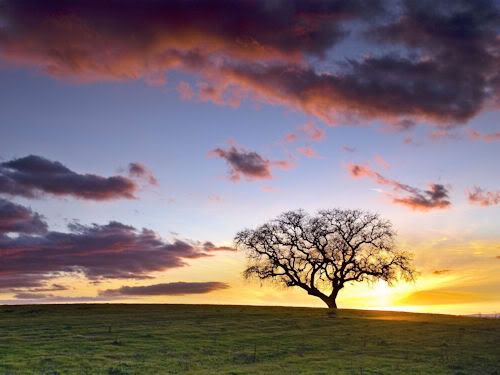Many bloggers, including me, have expressed frequent consternation at the lack of substantive female voices in the mainstream media. On that note, there are times when I wonder what both Kathleen Parker and Maureen Dowd are both smoking and inhaling. Tweedledum and Tweedledee routinely write columns crafted with such a flagrant disregard for coherence or original analysis that I wonder how they even ended up with a job. Both of these writers are supposed to be the apex of serious journalism and with it the mouthpiece of womanhood and womens’ concerns. It seems as though both conservative and liberal women are getting the short end of the stick, though I’m hardly surprised at the revelation. And it isn’t just women who are suffering from such inadequacy.
Martin Austermuhle, writing today at dcist, points out the sloppy logic of Parker’s latest column in The Washington Post.
Parker asserts that shoveling is something men just need to do, like it’s hard-wired into our genetic code. “What do men want?” she asks. “Shovels. Men want shovels, the bigger the better,” she responds.
“Women can’t be blamed for wanting to be independent and self-sufficient, but smart ones have done so without diminishing the males whose shoulders they might prefer on imperfect days. Add to the cultural shifts our recent economic woes, which have left more men than women without jobs, and men are all the more riveted by opportunities to be useful,” she observes.
According to her profound analysis on the matter, the minute we simple-minded men see a flake of snow, we go running to the nearest shovel. “Man is never happier than when he is called to action, in other words. That is to say, when he is needed,” she posits. Of course, she does add that women will shovel, but she only admits as much to avoid “sexist stereotyping.” Yeah. That’s like prefacing a homophobic joke by saying, “But some of my best friends are gay!”
I frequently use personal examples in my posts and diary entries, but I am always careful to try to use facts and other sources to bolster my claims. There is great power in the personal, but Parker proves that the personal can be used very wrongly to stand in for objective truth. Ignoring societal conditioning in favor of innate biological programming is a tactic frequently employed by the Right, particularly as a means of keeping gender distinctions frozen in time. Even so, there are a few undeniable elements of our behavior that must be chalked up to the undeniable fact that some of us have two X chromosomes and some of us only have one. Yet, relying too heavily on that fact fails to take into account that we are distinct from other animals in that we have highly advanced brains and reasoning abilities. Since the beginning of time, humankind has been imposing its own version of reality beyond purely biological imperative and survival instinct.
The feud between Parker and Dowd is well-documented and I don’t need to add much more to it. Unsurprisingly, both columnists manage to miss the point altogether when they cobble together a collection of stale arguments and pseudoscience to make their case. They end up on opposite ends of a great existential divide, managing to be equally wrong in the process. Contrary to what Dowd says, men are necessary, but it should be added that they are necessary in ways beyond shoveling driveways or providing emergency manual labor. Contrary to what Parker says, it’s not biologically determined that men are born snow shovelers and ditch diggers.
Later in the column, Parker at least makes an effort to try to state that she isn’t homophobic or dismissive of the fact that gay men are equally capable of being “masculine”, but the conclusion she draws is bizarre, at best. If it wasn’t so strangely rendered, I might take more offense to what it implies.
As for Craig, he’s been happy the past 25 years with Jack, who, though he pleads a bad back, cooks a mean stroganoff, from which I have benefited twice since the snows began.
Doubtless, such displays of manliness — which in my view include feeding the hungry — are, like the weather, passing divertissements. And these jottings are but a wee contribution to the annals of gender study. But if one should ever stop pondering the malaise of modern woman long enough to consider what men might want, the answer is obvious to any except, perhaps, the U.S. Congress.
Give a man a job, and he’ll clear a path to your door.
Her convoluted conclusion seems to be that women have focused too selfishly on their own empowerment that they’ve failed to understand or appreciate the contributions of men. With it comes an underlying assumption that men feel confused these days because their time-honored roles in society have been somehow denigrated or tarnished since women started demanding equal rights, equal pay, and basic equality. If only things were this simple. If only women had anything remotely close to the same degree of parity with men. If only, for example, there was some set standard of what all men wanted or what all women wanted, for that matter.
One can’t just make a blanket statement based on absolutes. Men are not some monolithic entity any more than women are. Surveying the women and men with whom we work, live, and interact will reveal that gender distinctions are not distributed exactly the same for everyone. In that spirit, it is equally wrong-headed to reduce men to violent brutes or women to flighty fashionistas. A major problem everyone faces is that we are forced to conform to gender roles that are designed for one-size-fits-all settings when we are all different sizes, shapes, and proportions. If gender were a set of clothes, we’d be tugging on it constantly, hoping that with enough effort it eventually would cover us properly. And so long as we impose simplistic identity upon complex humanity, it never will quite work.
The major problem at play here is that Feminist groups and women’s rights groups tend to often to couch their analysis in overly-academic terms. I can vouch for this personally. This means that pop-feminist analysis like Parker and Dowd ends up shaping the perception of most people, as though these sorts of stilted descriptions are some objective picture of the way things really are. But these two aren’t even the worst offenders. At least these columnists usually mean well and usually at least aim high. Meanwhile, aside from “serious” analysis, a perversion of Feminism leads women to believe that there is something empowering in being publicly sexual or in adopting the same pose of their chauvinistic brethren. Objectification by any other name, this is an attitude reflected ever more frequently in popular culture. But instead of focusing on whether or not it’s a good thing that now Tween aged girls are dressing provocatively rather than like the children that they are, or whether we’re including people of color into our depictions of feminine identity, or whether transgender citizens are treated with the respect they deserve, instead we get into the eternal back and forth about whether the cause of women’s rights has done more harm than good and whether men are suffering as a result.
This degree of navel-gazing does no one any good. Periodically, it might be helpful if we engaged in a respectable dialogue about how far the rights of women have come, where the movement is headed, and what we all might take from it. However, if this territory is mined constantly without anything especially novel or even interesting to report from it, then we forget that there’s much more to Feminism and gender equality than the tit-for-tat that never ends. Gender is a construct of the human mind and it is so pervasive that its impact effects us in ways that are both exceptionally glaring and maddeningly minute. The complexities of civilization and the human mind have given rise to a huge amount of interrelated information to be combed through, but if we fail to survey it in totality, then it does us no good. The mysteries of men and women will remain so forever. We might not solve them all, but we’d be a damn sight closer to a greater understanding than we are now, instead of focusing so narrowly on one particularly yawn-inducing issue.


